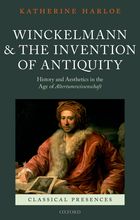Reading’s Department of Classics is delighted to welcome the two most recent additions to our Faculty bookshelf by Prof. Annalisa Marzano and Dr Katherine Harloe:
 Prof. Annalisa Marzano published her monograph ‘Harvesting the Sea. The Exploitation of Marine Resources in the Roman Mediterranean‘. Harvesting the Sea provides the first systematic treatment of the exploitation of various marine resources, such as large-scale fishing, fish salting, salt and purple-dye production, and oyster and fish-farming, in the Roman world and its role within the ancient economy. Prof. Annalisa Marzano published her monograph ‘Harvesting the Sea. The Exploitation of Marine Resources in the Roman Mediterranean‘. Harvesting the Sea provides the first systematic treatment of the exploitation of various marine resources, such as large-scale fishing, fish salting, salt and purple-dye production, and oyster and fish-farming, in the Roman world and its role within the ancient economy.
Bringing together literary, epigraphic, and legal sources, with a wealth of archaeological data collected in recent years, Marzano shows that these marine resources were an important feature of the Roman economy and, in scope and market-oriented production, paralleled phenomena taking place in the Roman agricultural economy on land. The book also examines the importance of technological innovations, the organization of labour, and the use of the existing legal framework in defence of economic interests against competitors for the same natural resource. |
|
 Dr Katherine Harloe published her monograph ‘Winckelmann and the Invention of Antiquity. History and Aesthetics in the Age of Altertumswissenschaft‘. This volume provides a new perspective on the emergence of the modern study of antiquity, Altertumswissenschaft, in eighteenth-century Germany through an exploration of debates that arose over the work of the art historian Johann Joachim Winckelmann between his death in 1768 and the end of the century. Dr Katherine Harloe published her monograph ‘Winckelmann and the Invention of Antiquity. History and Aesthetics in the Age of Altertumswissenschaft‘. This volume provides a new perspective on the emergence of the modern study of antiquity, Altertumswissenschaft, in eighteenth-century Germany through an exploration of debates that arose over the work of the art historian Johann Joachim Winckelmann between his death in 1768 and the end of the century.
Winckelmann’s eloquent articulation of the cultural and aesthetic value of studying the ancient Greeks, his adumbration of a new method for studying ancient artworks, and his provision of a model of cultural-historical development in terms of a succession of period styles, influenced both the public and intra-disciplinary self-image of classics long into the twentieth century. Yet this area of Winckelmann’s Nachleben has received relatively little attention compared with the proliferation of studies concerning his importance for late eighteenth-century German art and literature, for historians of sexuality, and his traditional status as a ‘founder figure’ within the academic disciplines of classical archaeology and the history of art. Harloe restores the figure of Winckelmann to classicists’ understanding of the history of their own discipline and uses debates between important figures, such as Christian Gottlob Heyne, Friedrich August Wolf, and Johann Gottfried Herder, to cast fresh light upon the emergence of the modern paradigm of classics as Altertumswissenschaft: the multi-disciplinary, comprehensive, and historicizing study of the ancient world. |

